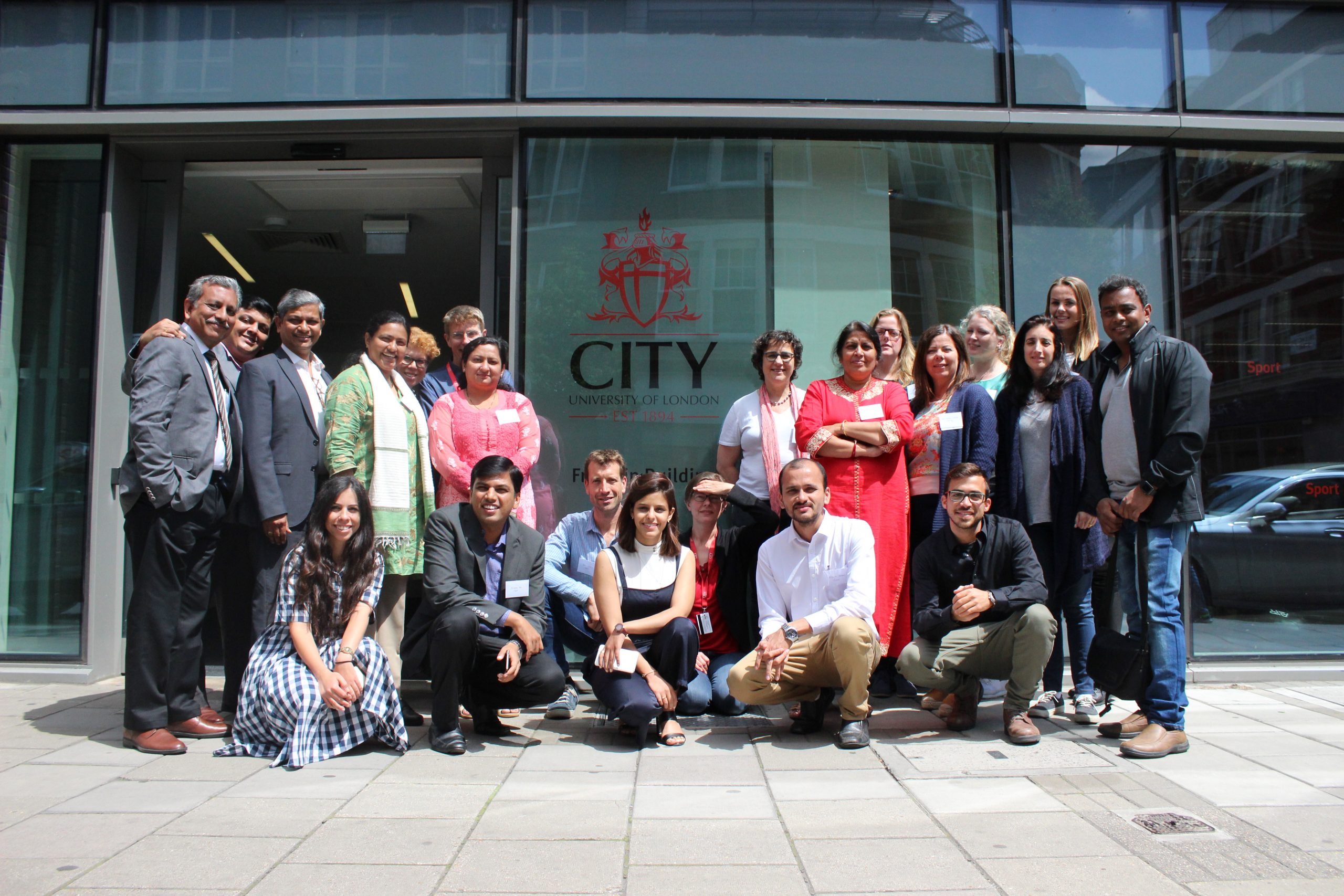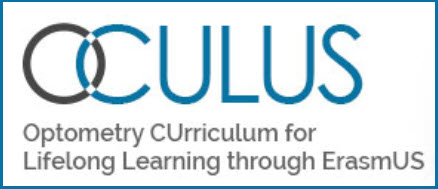What is the OCULUS Project?
The OCULUS Project is a consortium of educators from optometry schools in Europe (Norway, UK, Spain, and the Netherlands). Its aim is to reform optometric education in Israel and India towards European standards. This means greater employability and job mobility for graduates, and a reduction in blindness and vision impairment due to better-trained optometrists. OCULUS is a multinational project together with India. It is coordinated by Hoggskolen I Sorost Norge in Norway. Find out more about the OCULUS Project here.
 Tzofia Simkovich
Tzofia Simkovich
Tzofia Simkovich is a lecturer in the School Optometry and Vision Science at Bar-Ilan University (BIU). She holds a BSc from Bar-Ilan and is currently a Master’s student in Prof. Uri Polat’s lab. Prof. Polat is the Head of the School of Optometry and Vision Science at BIU. Ms Simkovich’s research interest is in visual perception and she teaches “optical dispensing” and “the optical lab” to second-year students. She is the OCULUS Project coordinator for BIU. Ms Simkovich is licensed to practice optometry in Israel by the Ministry of Health. She was born in Israel and lives in Jerusalem.
Ms Simkovich Shares her Thoughts about the OCULUS Project
Participating in the OCULUS Project (Optometry CUrriculum for Lifelong Learning through ErasmUS) was a great opportunity for Bar-Ilan University’s School of Optometry and Vision Science to create collaborative efforts and relationships with various optometry departments in Europe and India, and to achieve reform in the curriculum towards the European diploma.
For me personally, I was able to express personal abilities which were not necessarily fully expressed in my academic role. This project was a wonderful challenge.
In addition, the project idea was itself interesting to me. We are lucky to live in times where knowledge and sources of information are easily accessible, requiring us to examine our methods of learning and to explore ways to advance and develop them. This necessitates us going through a process of clarifying which learning tools we want to give to our students. In this respect, the project certainly provided an answer.
One major benefit of the OCULUS Project was international exposure for Bar-Ilan University. This took place through several conferences, one of which was hosted by Bar-Ilan and was attended by lecturers from Europe and India. The project enabled contact between Optometry departments around the world and created a space for the exchange of ideas for joint research, faculty exchanges, and student exchanges.
From an internal point-of-view, the project strengthened the connections between the various departments and enabled us to share existing resources within Bar-Ilan University. As an example, it allowed for collaboration with the Life Sciences Library to study evidence-based practice (EBP).

The OCULUS team outside the University of London. Tzofia Simkovich is front left.
The project also gave us the opportunity to connect with the Hadassah College Optometry department and enabled us to establish cooperative efforts between the heads of the departments. They now consult each other and formulate positions on various issues in the field of Optometry.
OCULUS helped us improve our curriculum and expand our program. Today, in our clinics, there is more detailed supervision so that students are exposed to as many different situations as possible. The number of subjects and choices has increased, and workshops have been held. The form of exam scores at the clinic is now very structured and uniform and there is more transparency for students. New courses have been developed, existing courses have been changed and updated, and in general, thanks to the project, there is more collaboration among the lecturers at Bar-Ilan University’s School of Optometry and Vision Science.
As a result of the project, we have been exposed to different academic requirements and new ways of learning and teaching. The way I teach today has changed. I use more technology and put more emphasis on tools of critiquing so students can filter all available knowledge, as well as expose them to different ways of thinking and analysis.
Managing the project has given me so much more confidence in myself and my abilities. I experienced speaking in front of a professional audience in English, presented to professionals at conferences and in meetings, and got involved in areas in which I had no prior experience such as managing tenders, organizing conferences, financial management, and more.
I have gained so much from being part of this project. Besides the managerial challenges. I have been exposed to different cultures, different ways of thinking, new ideas, and diverse teaching methods. It has been the experience of a lifetime.
Contact Us for More Info
Leave your details and we’ll get back to you soon


